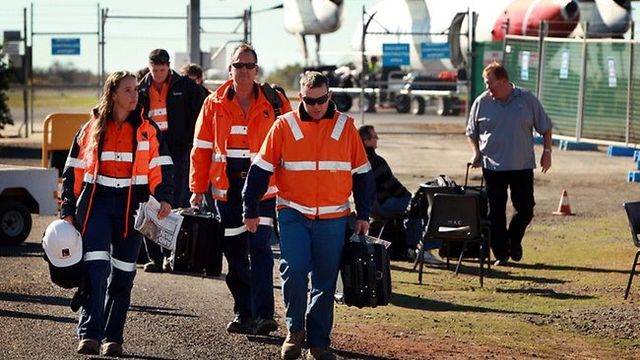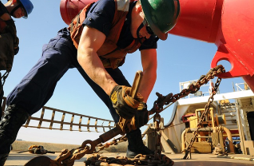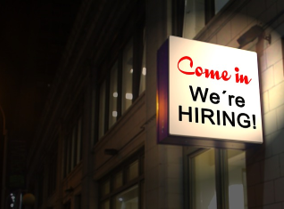
Here are 7 scenarios people looking for a mining job often face when writing their resumes and how to fix any issues.
Resumes in the mining industry these days look very different to yesteryear.
It used to be we had a “job for life”. Over our career we’d experience a handful of roles, each an improvement on the previous one, with very few gaps in our working life. Often this was not just in the same industry, but with the same company.
That must seem like another world to young people getting their start in the mining industry today.
But can you imagine how simple a person’s resume would have looked?
These days people have several employers, work in various locations, and often in different industries. Most people have taken a year or two off for family, travel, education or simply to take a sabbatical. There are gaps following redundancy, stints of short-term contracts and short-term roles–all exacerbated by the cyclical nature of the mining industry.
Suddenly, resumes don’t look so straightforward.
A standard reverse chronological resume now looks like a confusing road map and, to a recruiter, your career risks looking like it has no clear direction or pathway.
Does that sound like you? Here are seven scenarios people looking for a mining job often face when writing their resumes—and how to fix any issues.
1. “I’ve got gaps in my work history where I took time off to travel/study/lie on a beach”
Our team views hundreds of resumes each week and most have a gap of some length in them somewhere. Some jobseekers just hope it won’t get noticed. Trust us; it will. And recruiters will ask about it.
There are many perfectly acceptable reasons why you might have a gap in your employment and there are different ways to present this in a resume. Adding a few months to the beginning or end of a role is not one of those ways. (One of our recruiters once interviewed someone who was adamant they worked on the same site in the same team as her! They hadn’t—and they were caught out. A few questions quickly identified the “error” in their work history.)
Include in your resume some details of whatever you were doing at this time. “January 2016 to July 2016: Took six months off for solo world travel. Gained valuable life skills by stepping outside my comfort zone.”
That’s perfectly fine! Just explain the gap.

2. I’ve had lots of short-term contract roles in various occupations because of the mining downturn
Take a positive angle to this problem. You have remained employed, gained skills you possibly wouldn’t otherwise have, and you’ve gathered experience and knowledge of other industries.
Listing your time out of the industry as a single section is acceptable. Ensure it is still listed in chronological order to ensure the reader doesn’t have to scroll back and forth to read your work history. We can work with you to ensure these roles highlight the positives, while not letting non-mining experience take over your resume and keeping your mining experience front and centre.
RELATED: How to choose the right referee for your resume
3. I’ve had a long and varied career. How can I present my work history?
The reality is few people in the mining industry have a straight trajectory from graduate to supervisor, superintendent, manager, and so on. There are sidesteps, changes in commodity and, sometimes, a period where you remained at the same level for a long time.
Instead of looking back, focus on the future and the direction you want to take. Simplify and streamline your resume. Turn 10-page resumes containing a 30-year work history into a four-page resume and you’re much more likely to secure work. It can be done.
Pro tip: If you’ve had several similar roles with different companies, don’t add ‘responsibilities as above’, rather focus on two or three points specific to that role.
4. I’ve changed careers but want to come back into the mining industry
If you left the industry in the downturn, have several years in another industry, but want to return to the mining industry, you’re facing the “lack of recent experience” problem. Without that recent or current experience, it feels like you’re back to trying to get a foot in the door.
Focus on what you do know and emphasize what you have learnt in your time away from the mining industry. There are multiple skills that are relevant across various industries. Don’t pick the easy ones like ‘teamwork’ or ‘employee supervision’, rather consider what skills are important for the industry you have been working in, then look at how these transfer to the mining sector. Highlight the similarities in industry and the skills you have learnt or improved on while away from mining.

5. I don’t know what experience and skills to highlight in my resume
Listing what you did 10 years ago may (or may not) add value to your next role. It is never easy reviewing your own work history. Neither is deciding which key skills and experience from a job from several years ago are relevant.
What are the skills and experience needed for the role you are applying to? Consider how you can detail these in your resume. Focusing on the future when wording your skills in your resume is key.
6. Everything I have done in my career has got me to this point; why would I not include it?
This is a great philosophy if you are a recent graduate, but anyone with relevant experience for the roles they are applying for needs to be more selective about what they include. For example, to go to university you must have attended high school, yet we still see resumes listing high schools from individuals with 10 or more years of actual work experience.
Again, focus on your future career path. For the most part, after a decade in the workforce what you learnt as a graduate, trainee or apprentice has been cemented in and is now second nature. Adding detail in these roles in your resume is not essential to your next role.
READ MORE: 6 myths about resumes that most people still believe
7. I’m applying for mining jobs and not getting interviews
Your resume is a marketing tool for employers to assess if you are a suitable business partner. A key question to ask yourself is “would you interview this person for the role based on this resume?”
Create a checklist of the key requirements for the position and check you are addressing each one in your resume.
Warning: Some candidates try to be really sneaky and copy the advert content in small font onto the final page of their resume, then turn the font white. This may populate your resume with the keywords needed to get you through the initial software screen but it’s not going to make any difference when the hiring manager reads your experience! Use those keywords within your explanations and experience instead.
Be the first to know about new job postings when you register for job alerts. We’ll send you an email when the role you want becomes available.